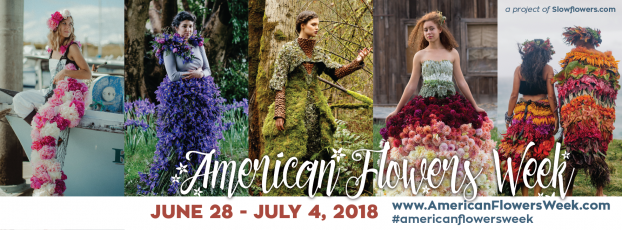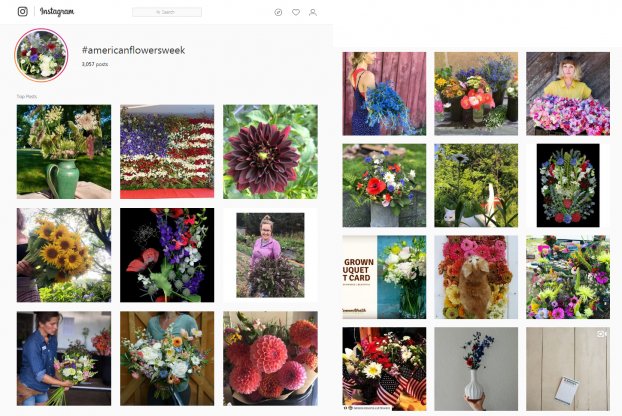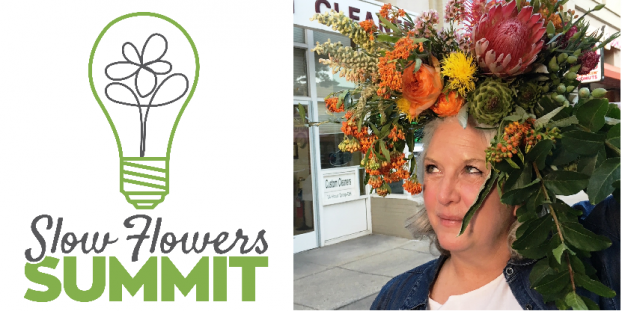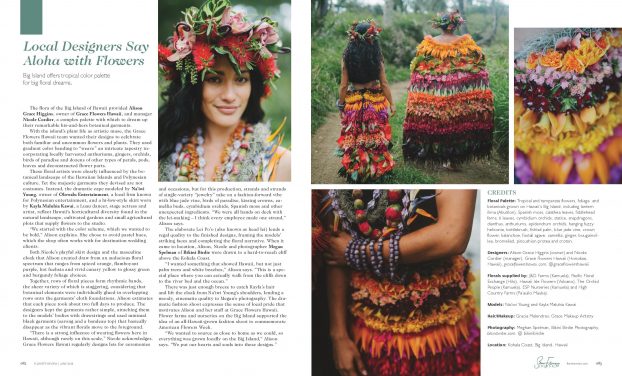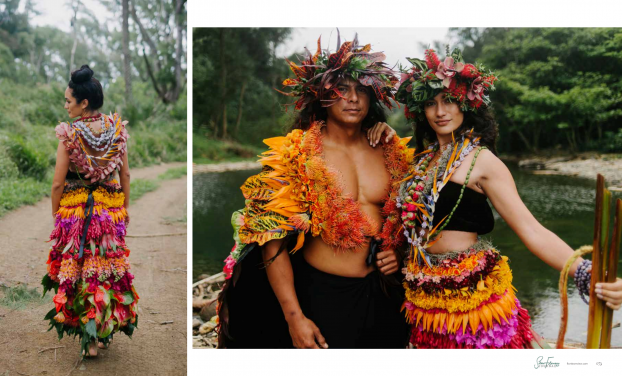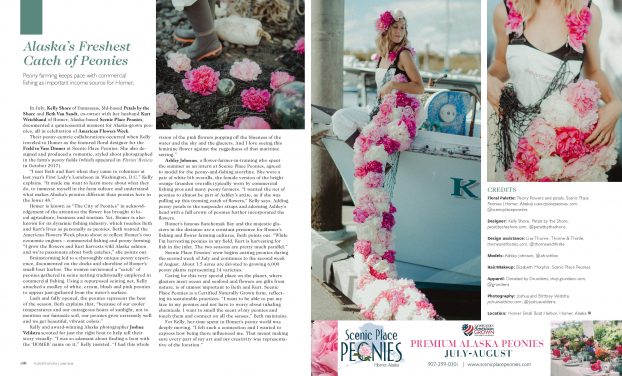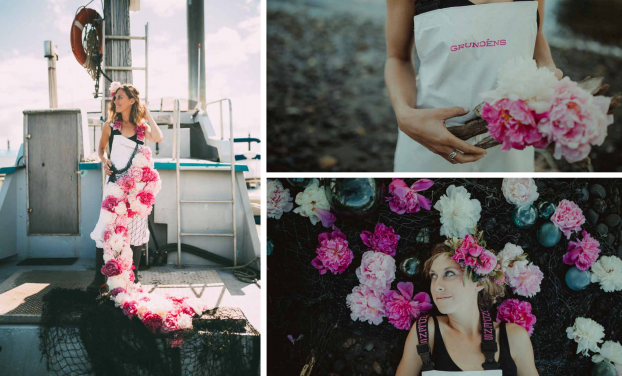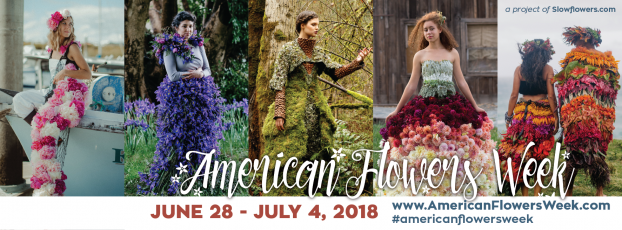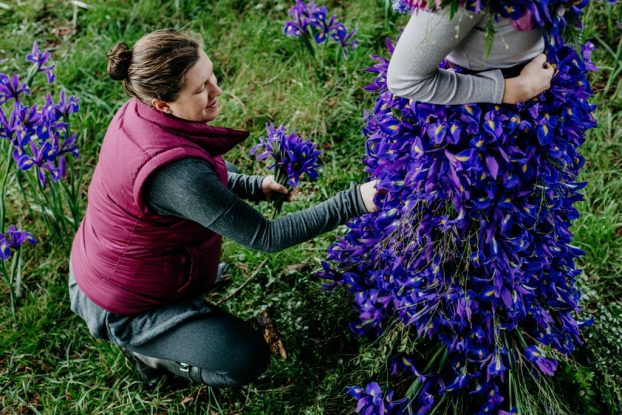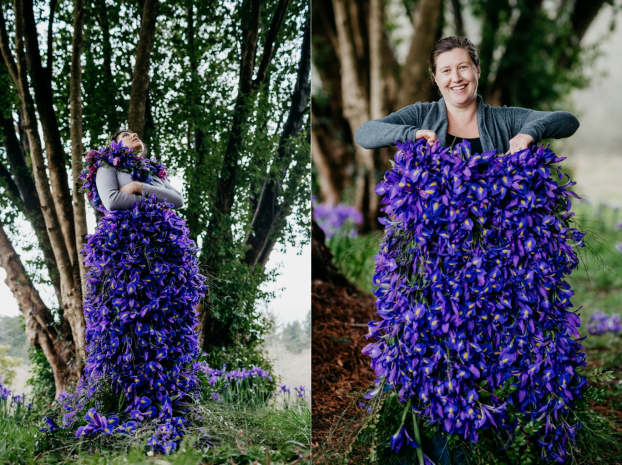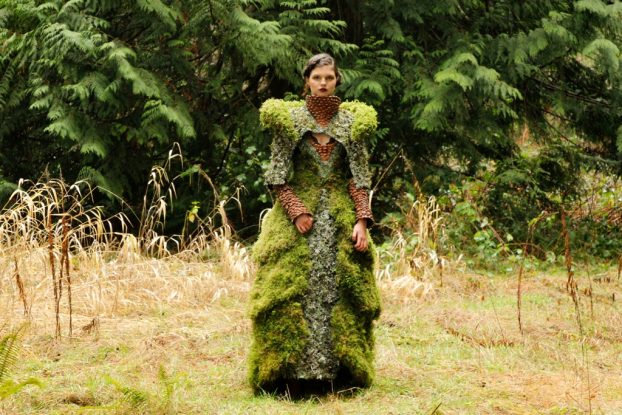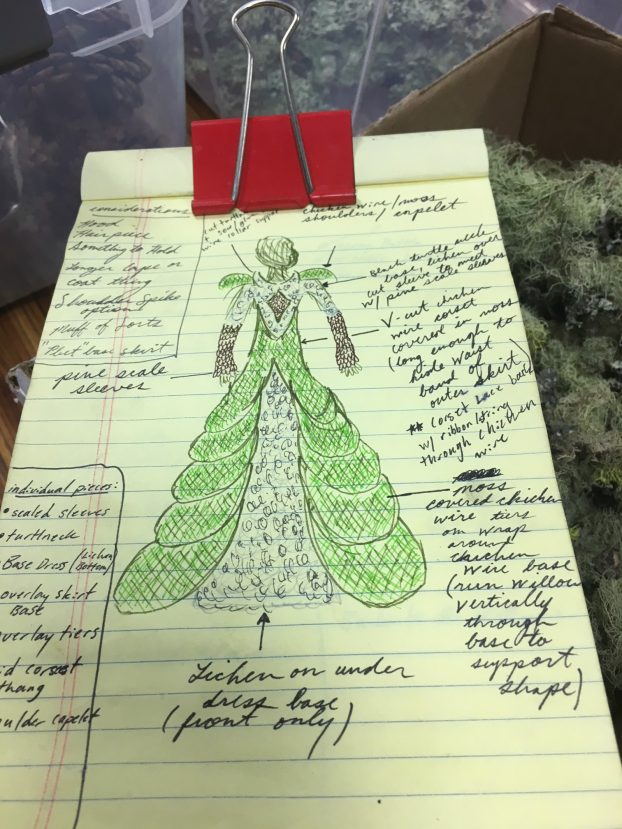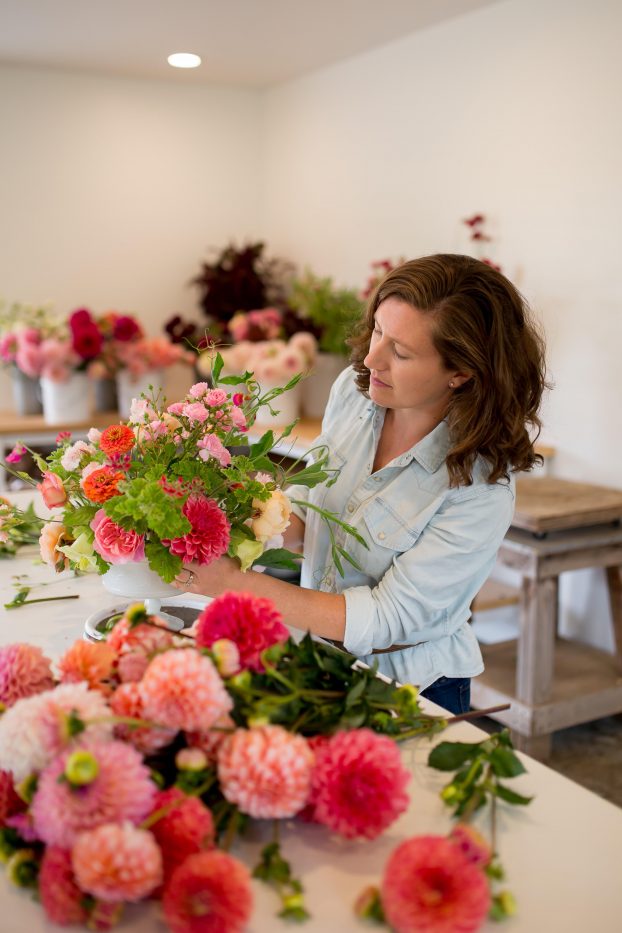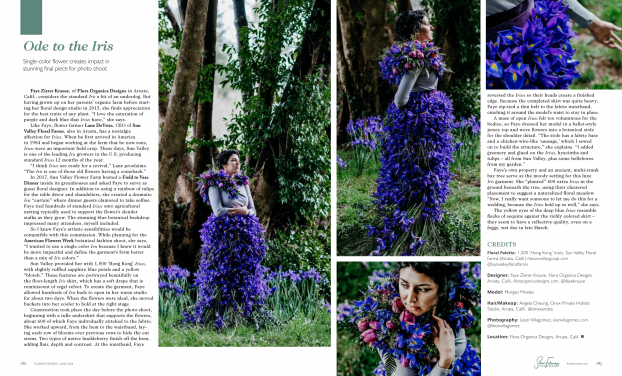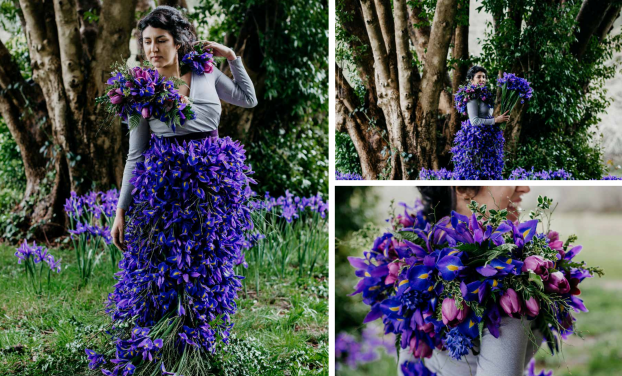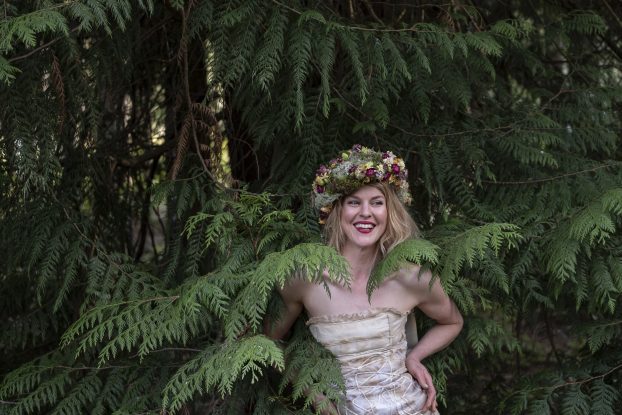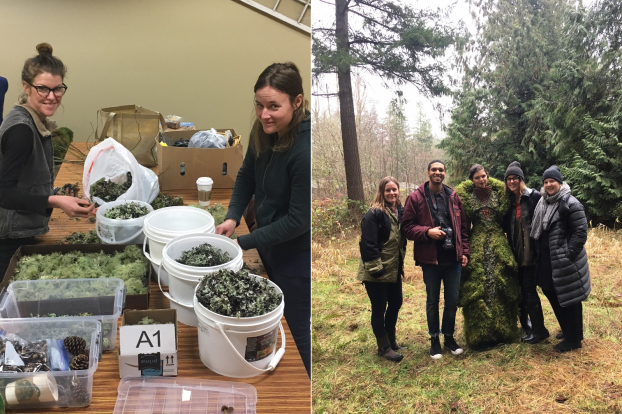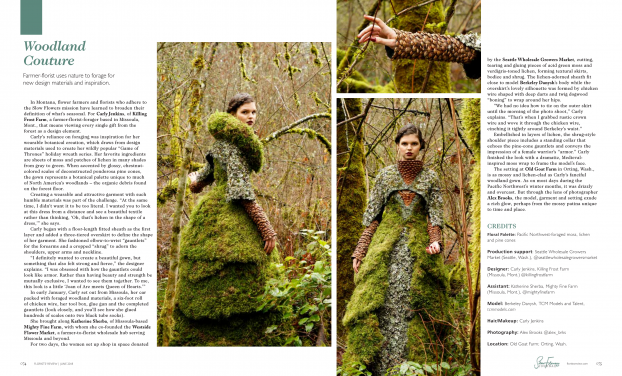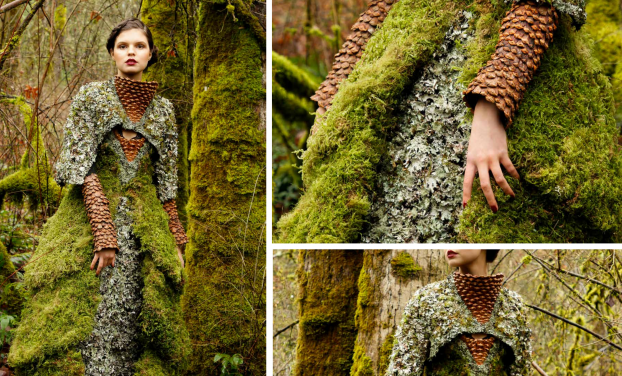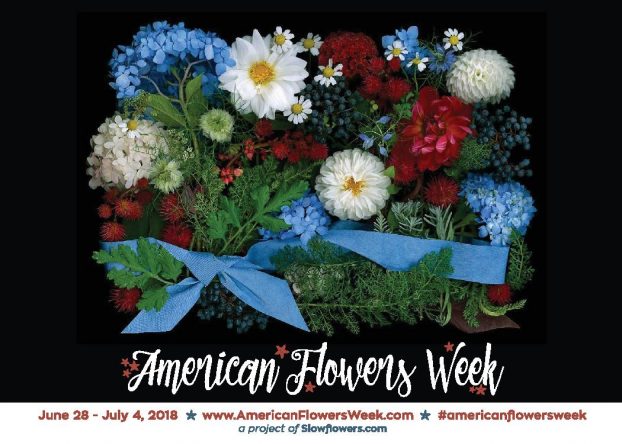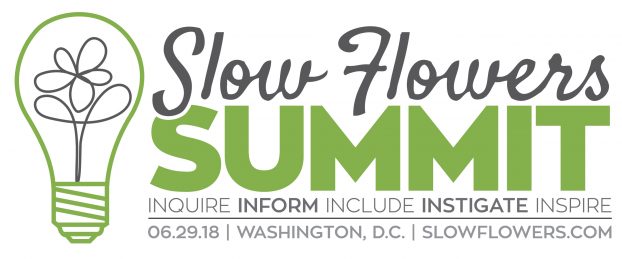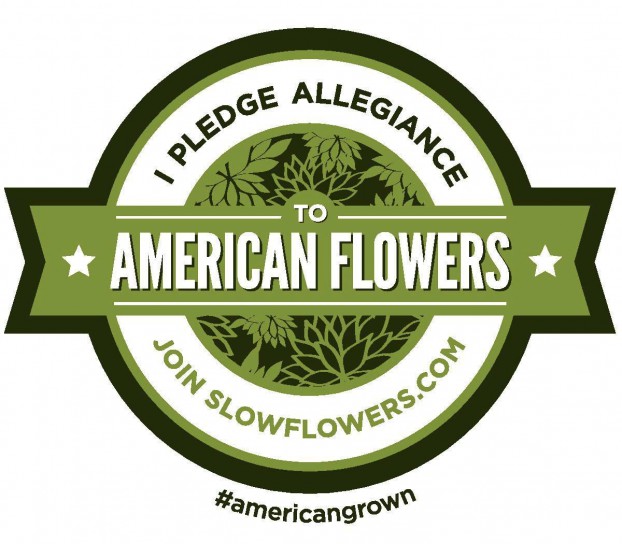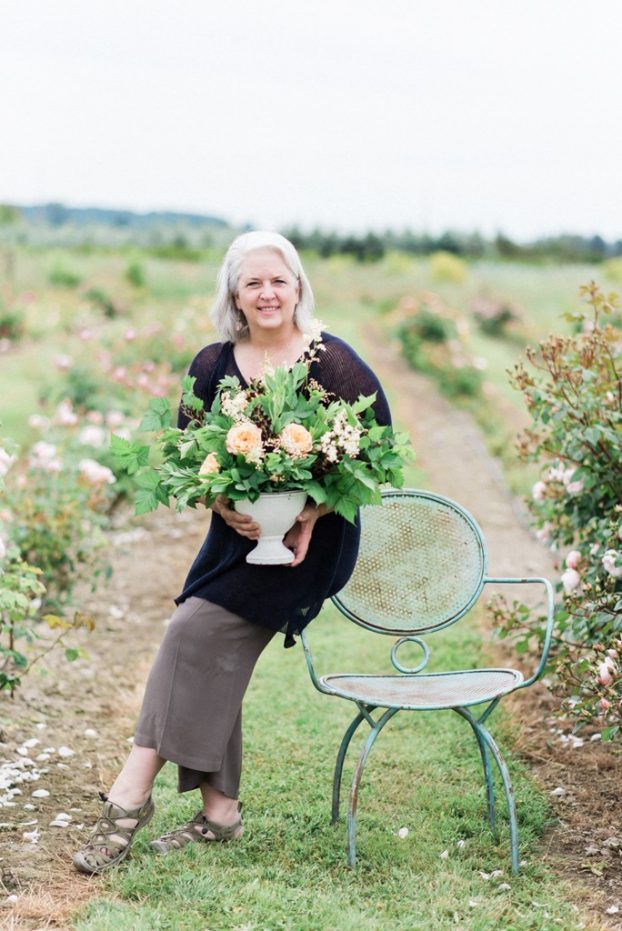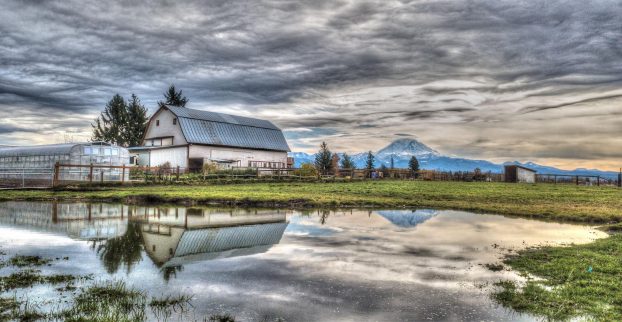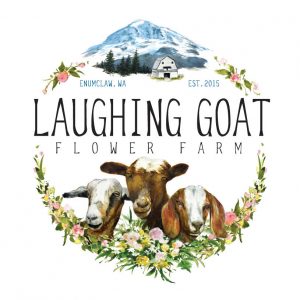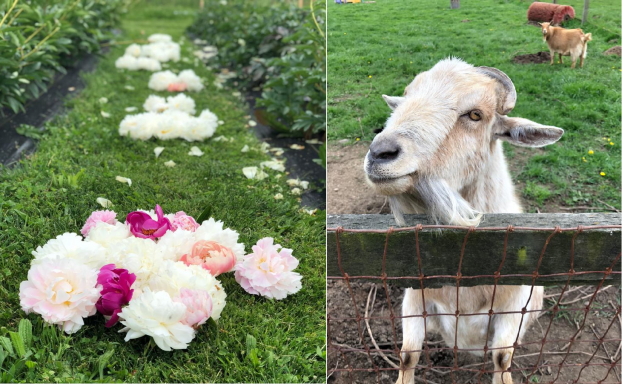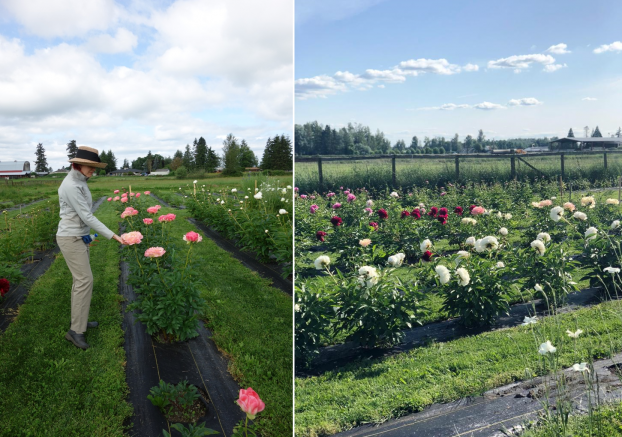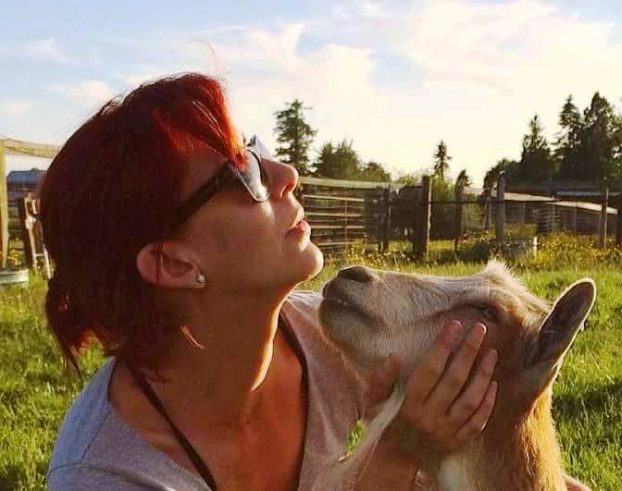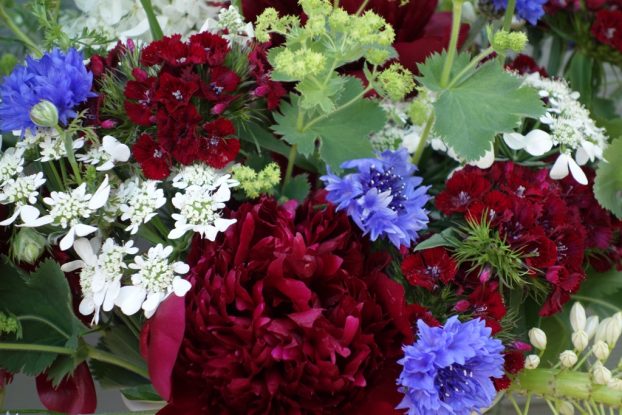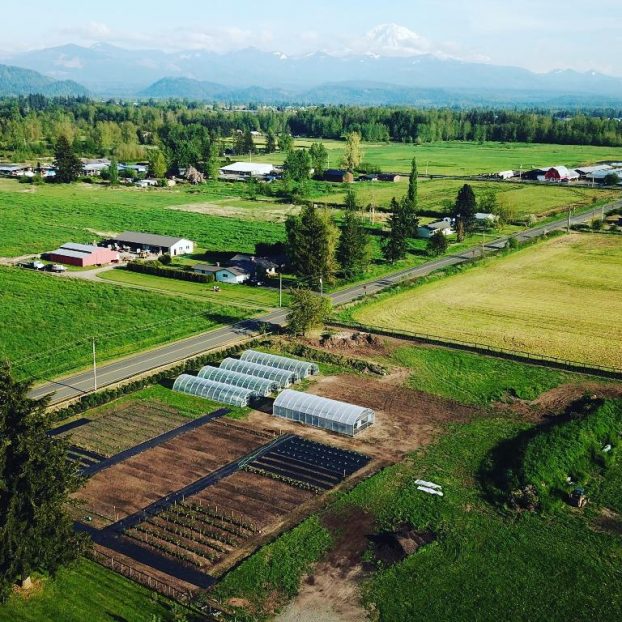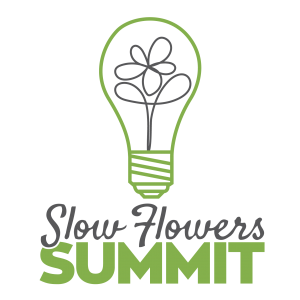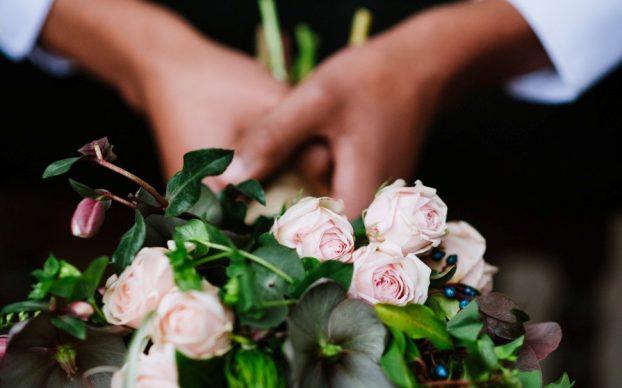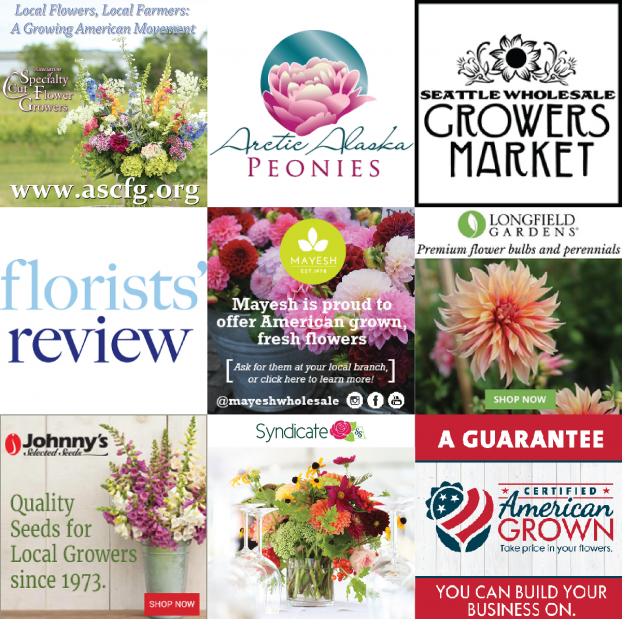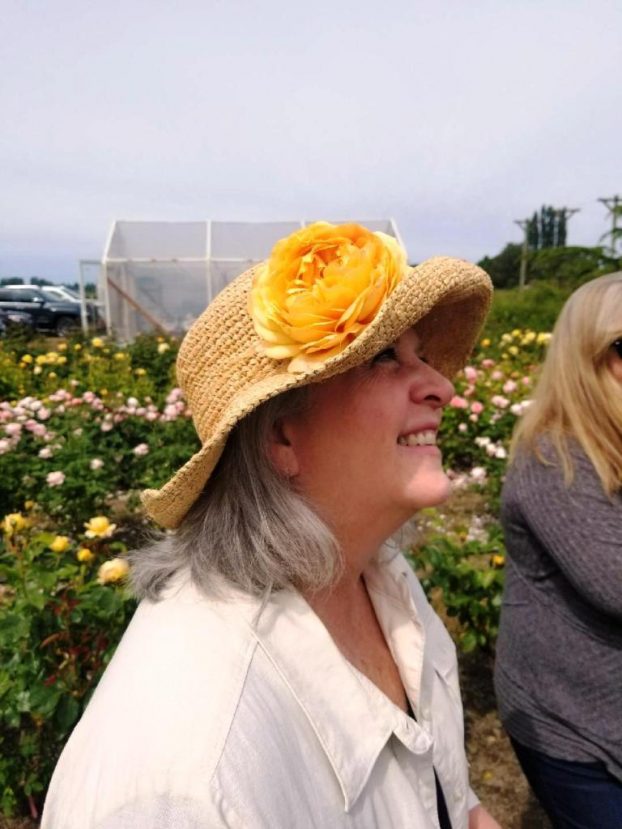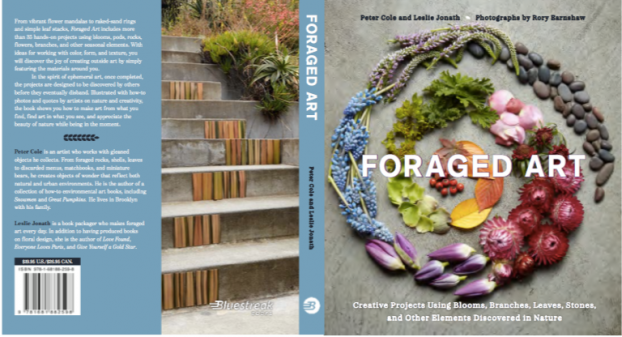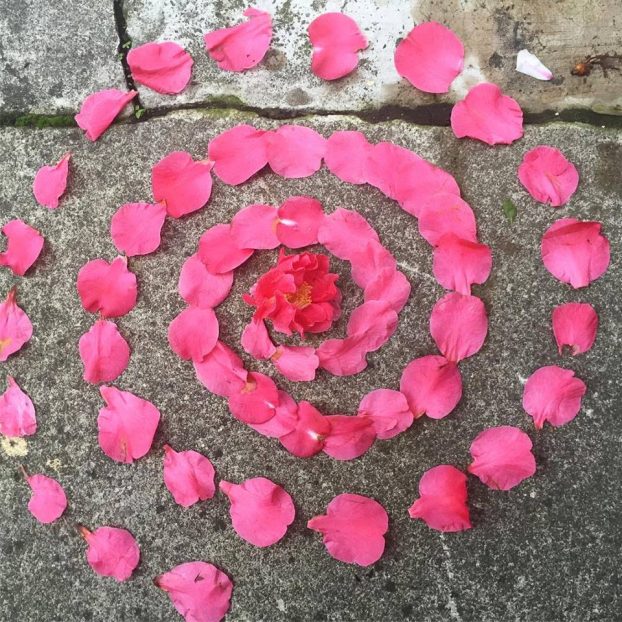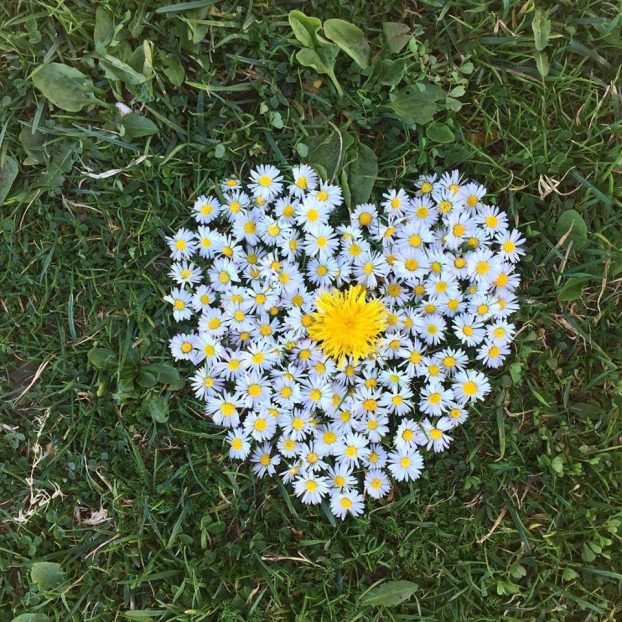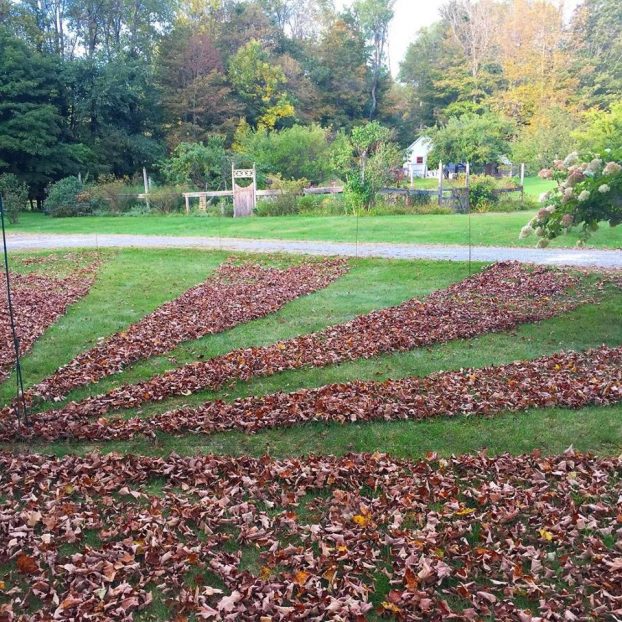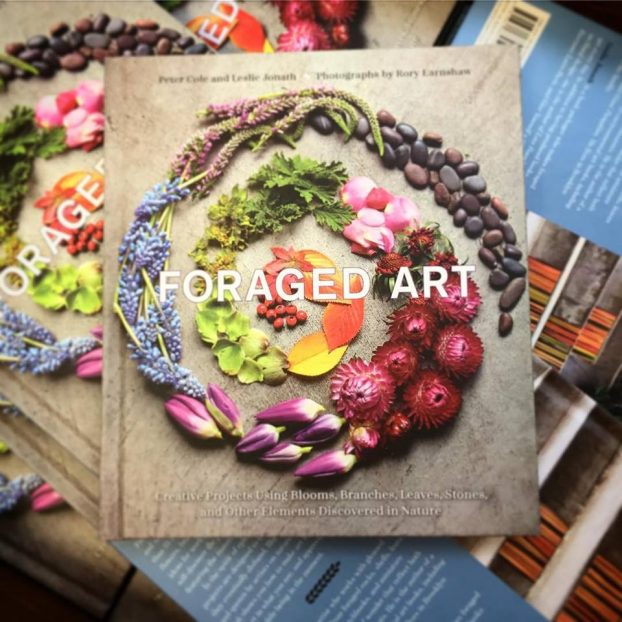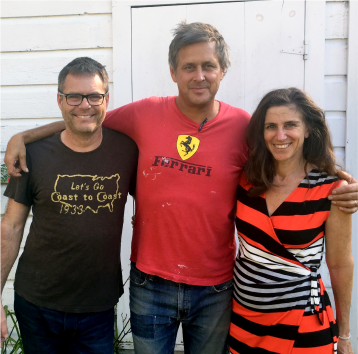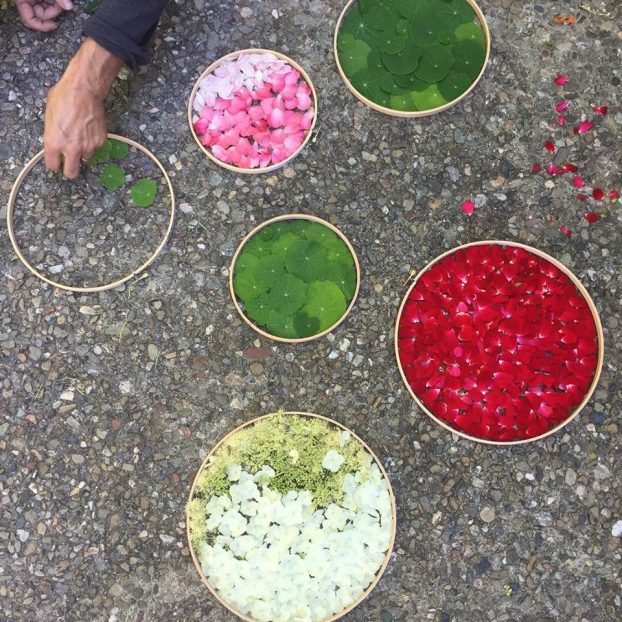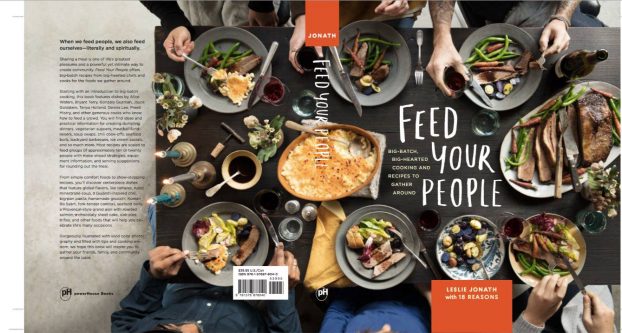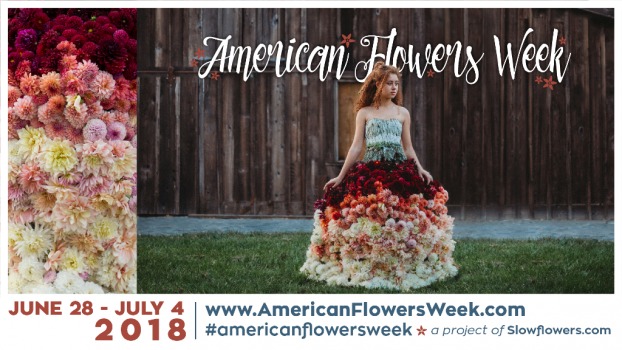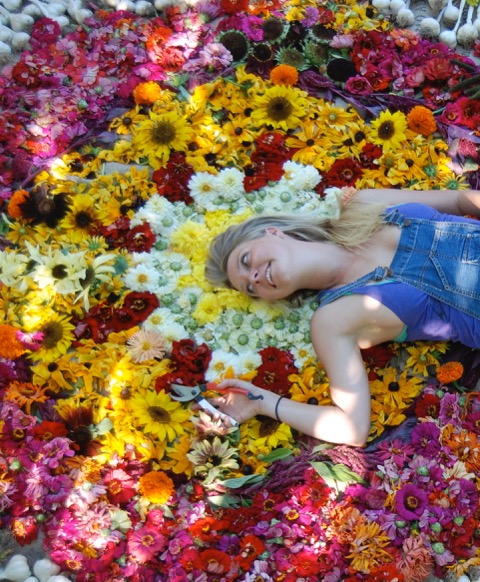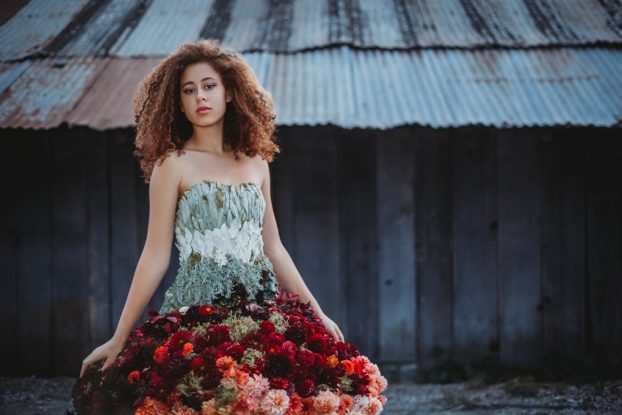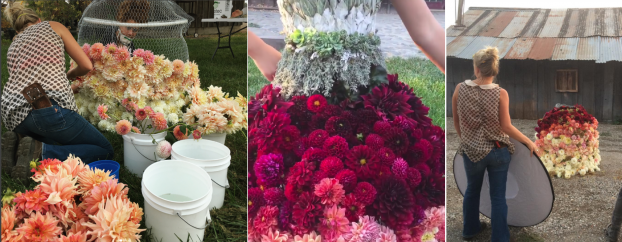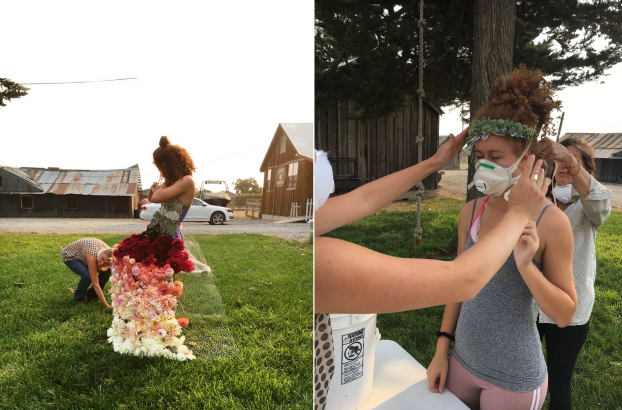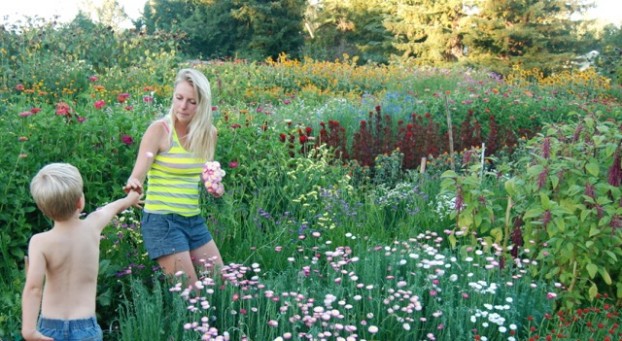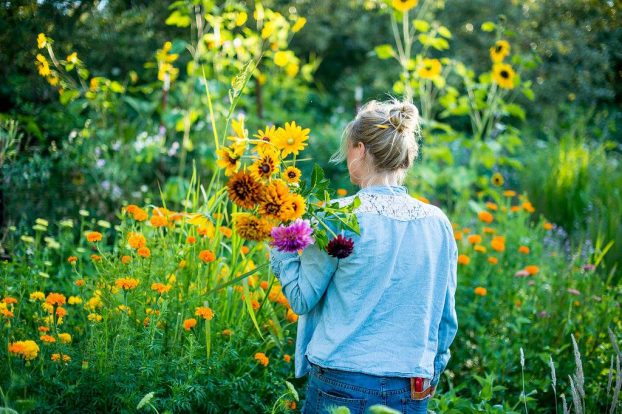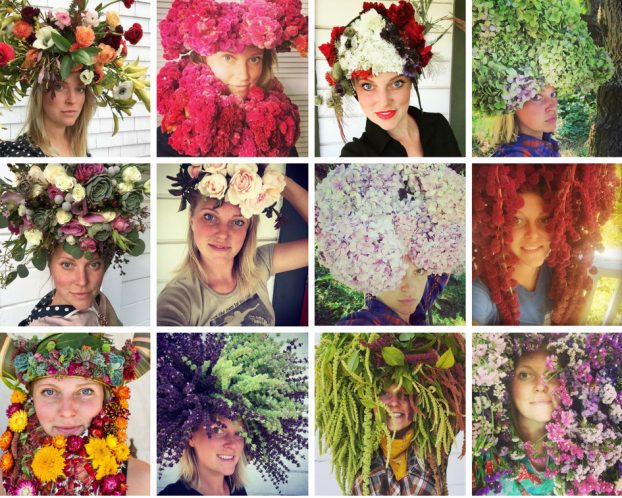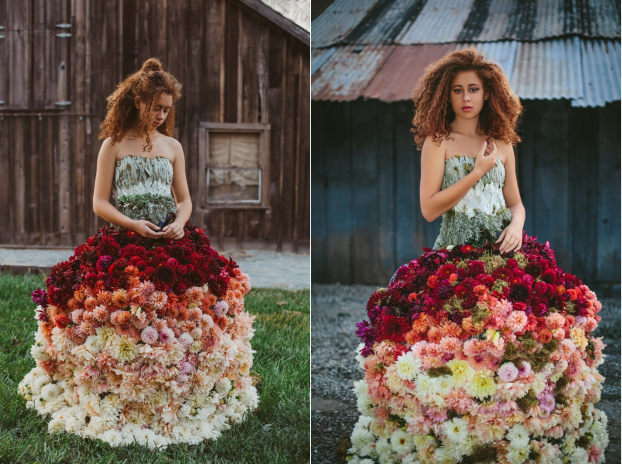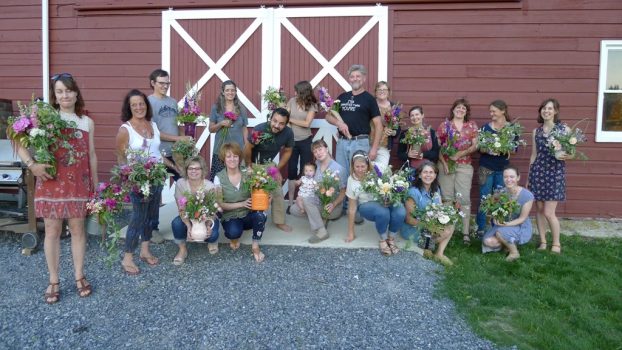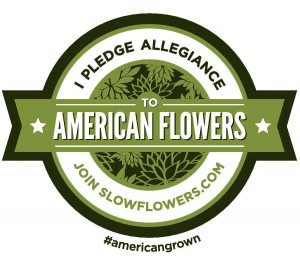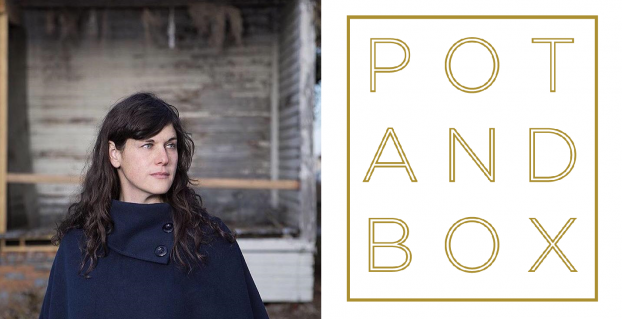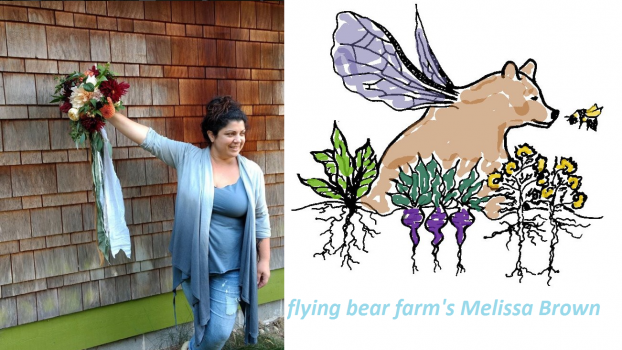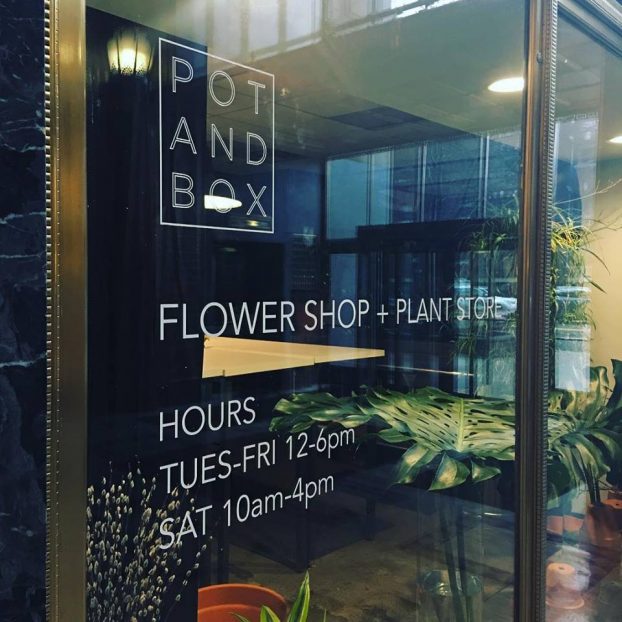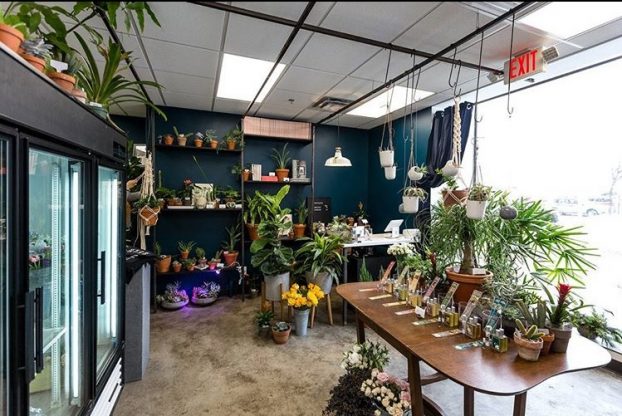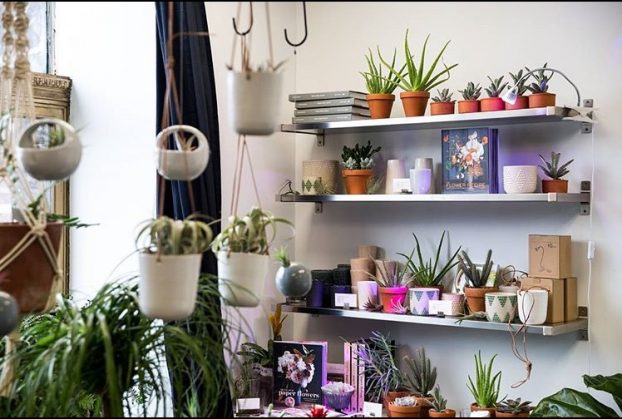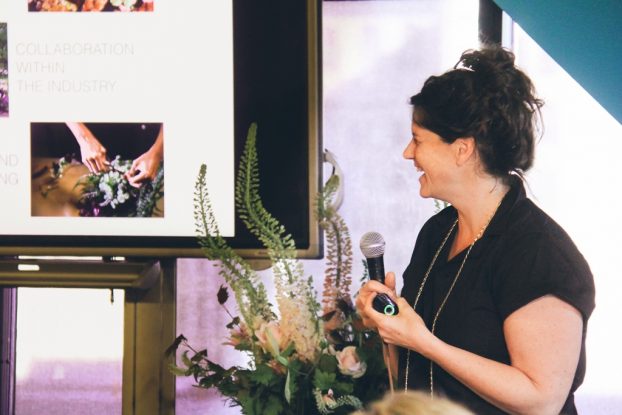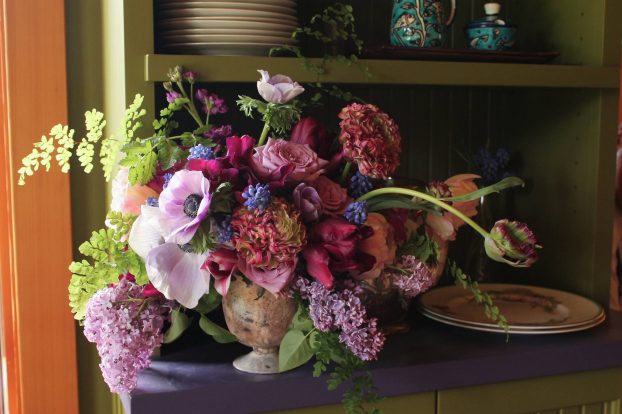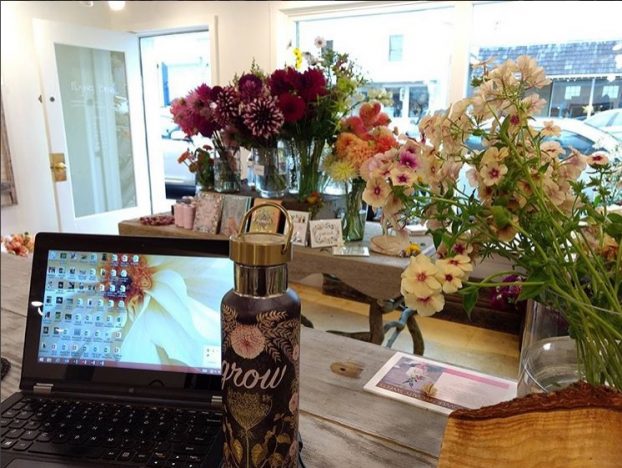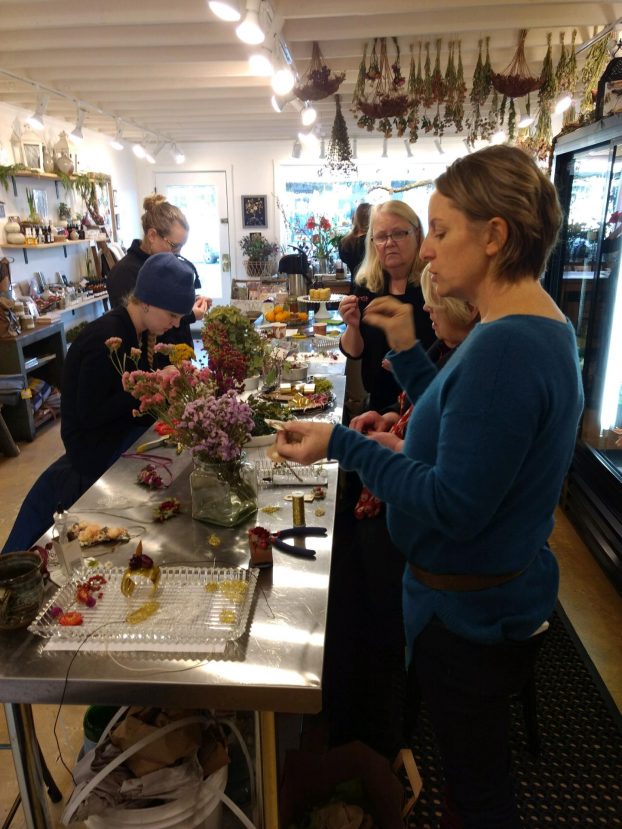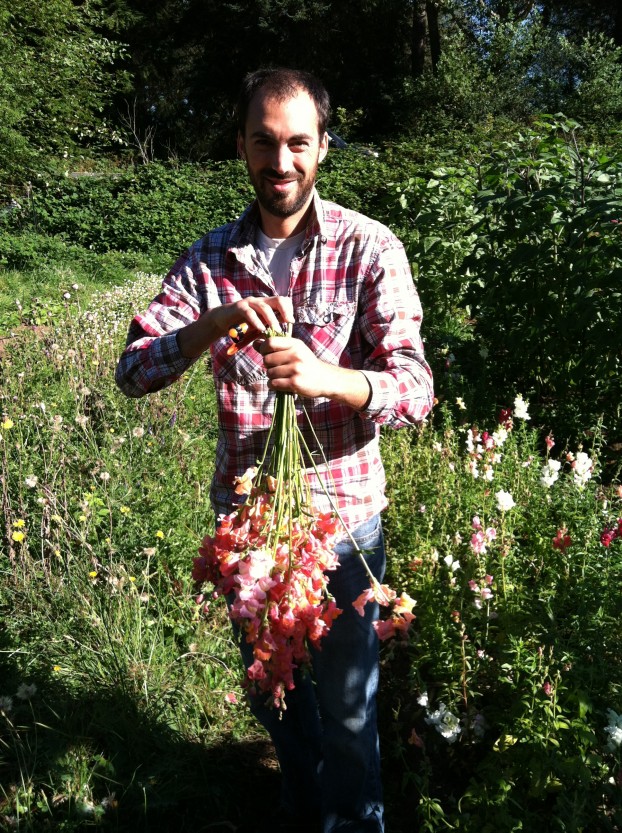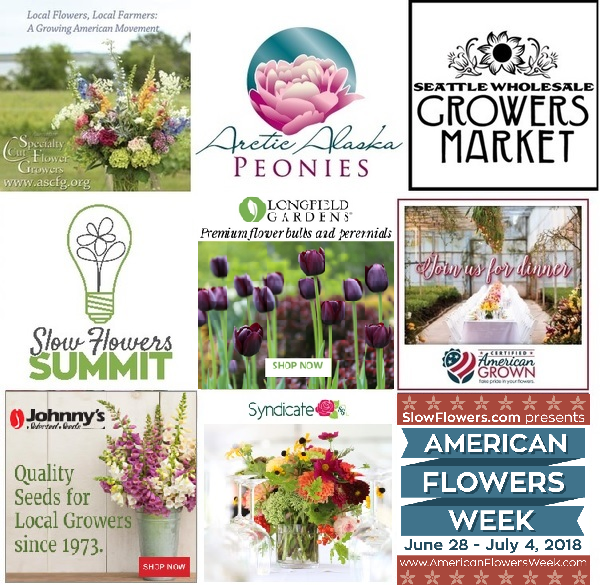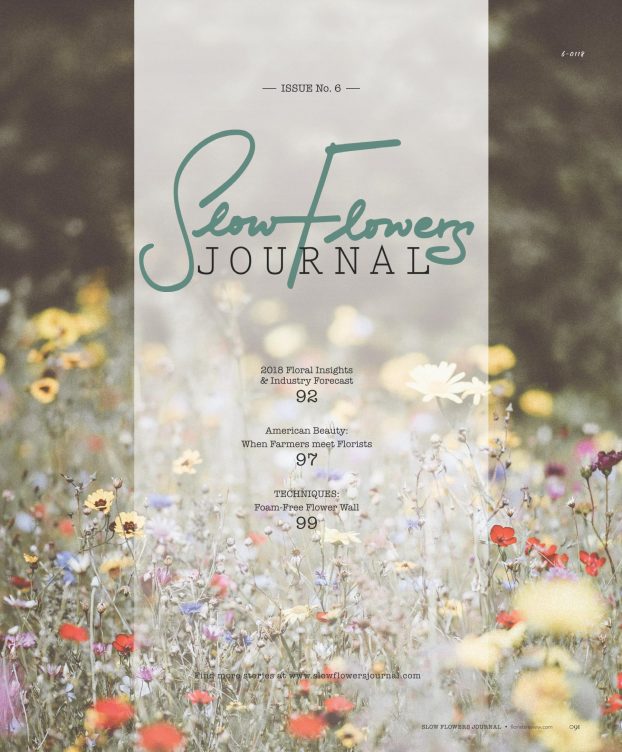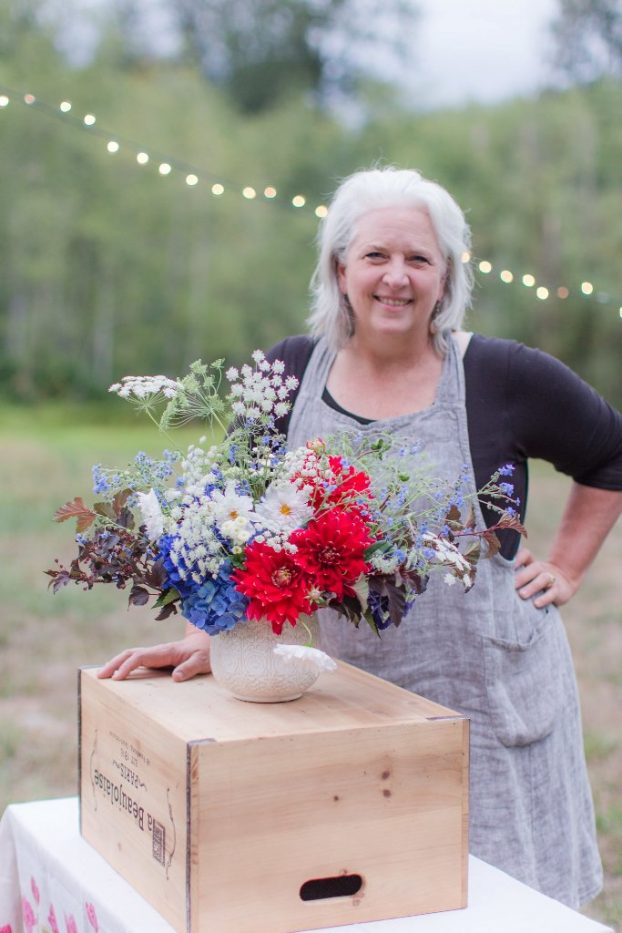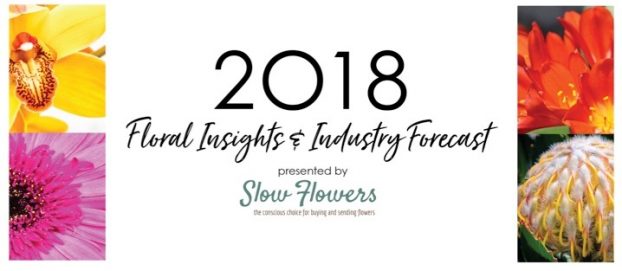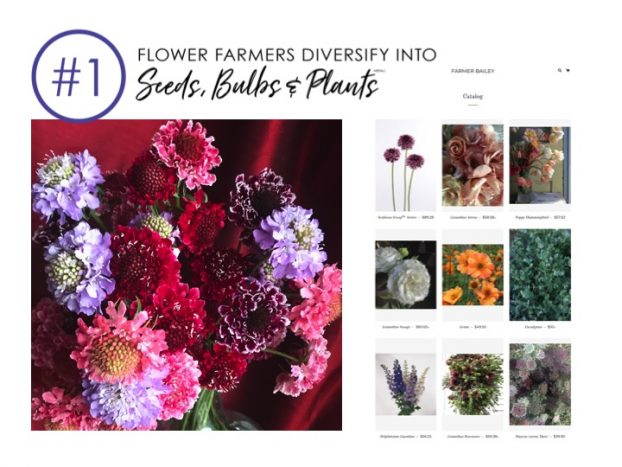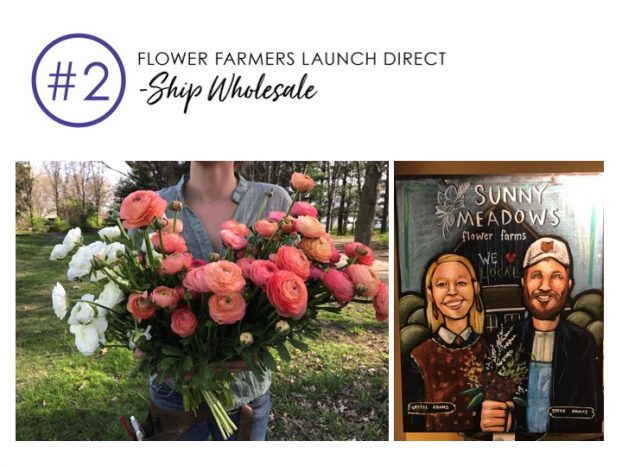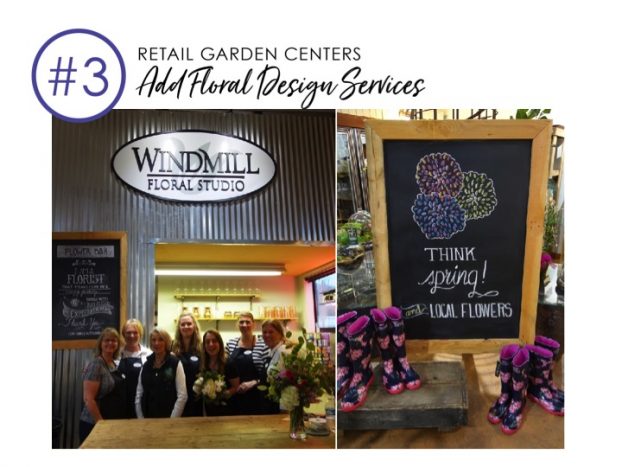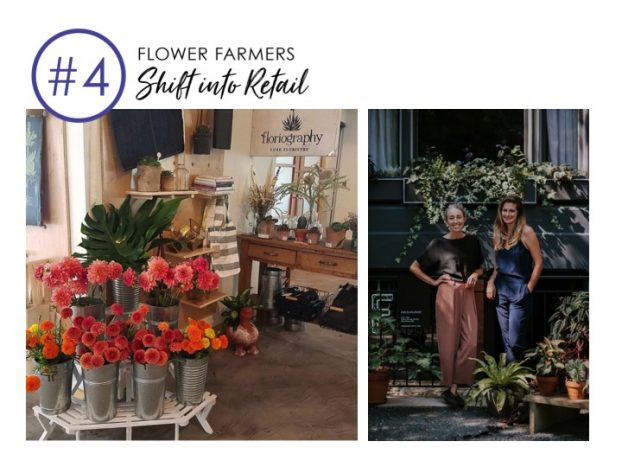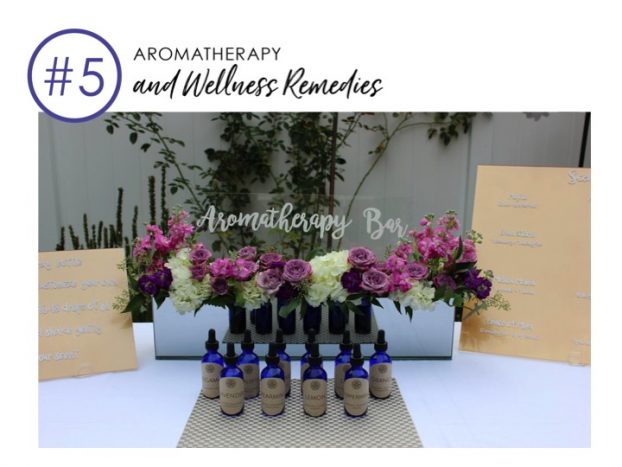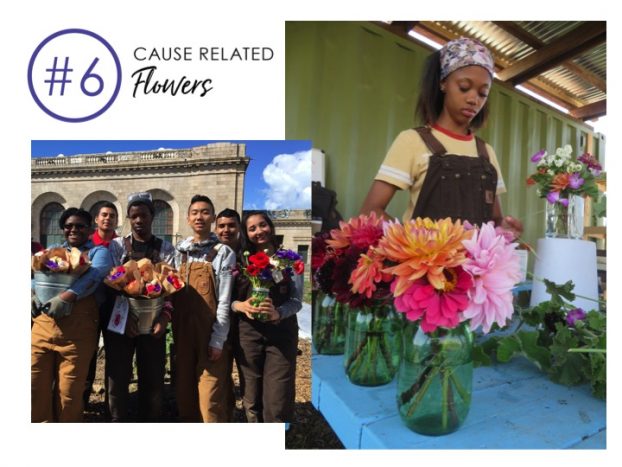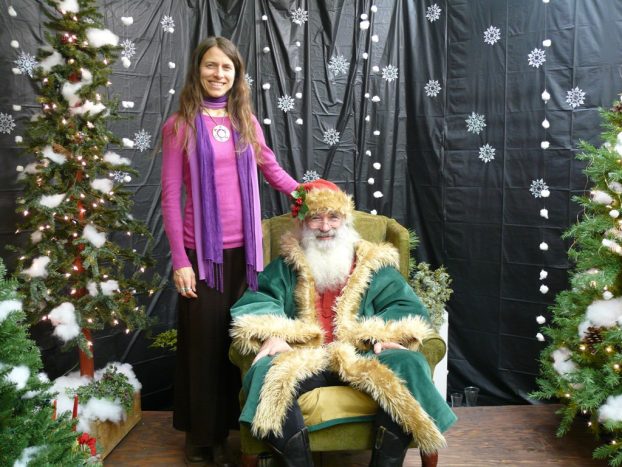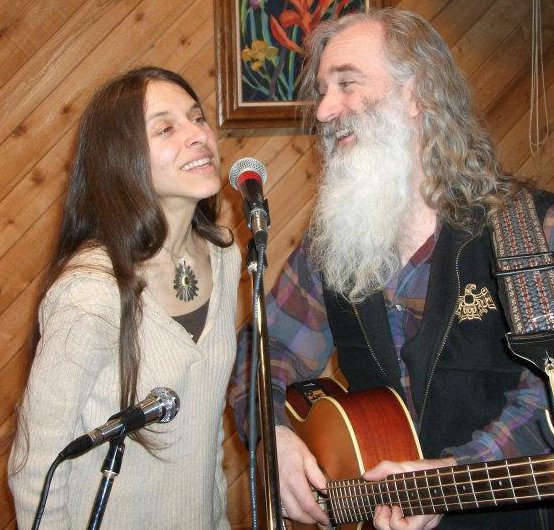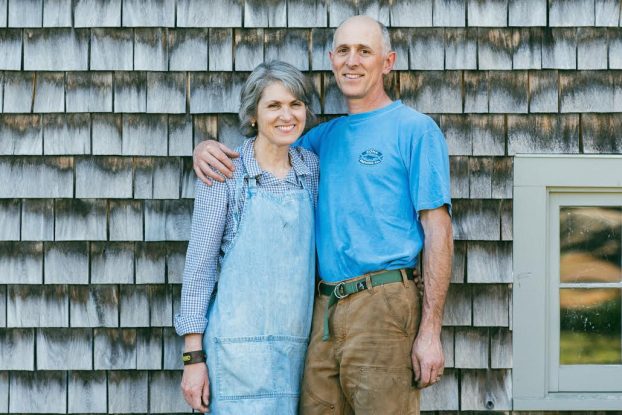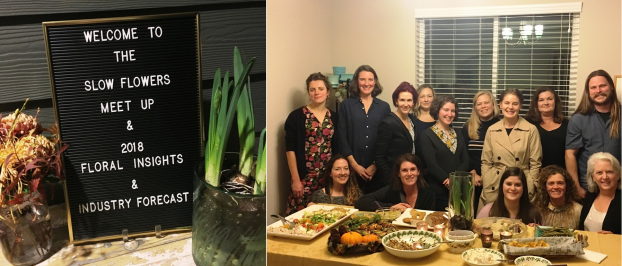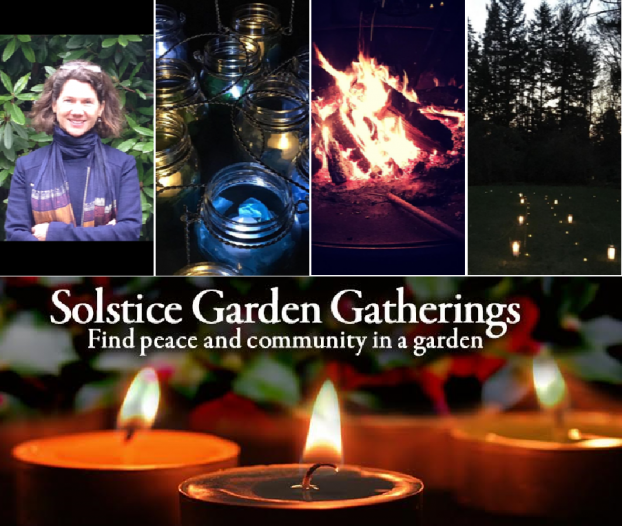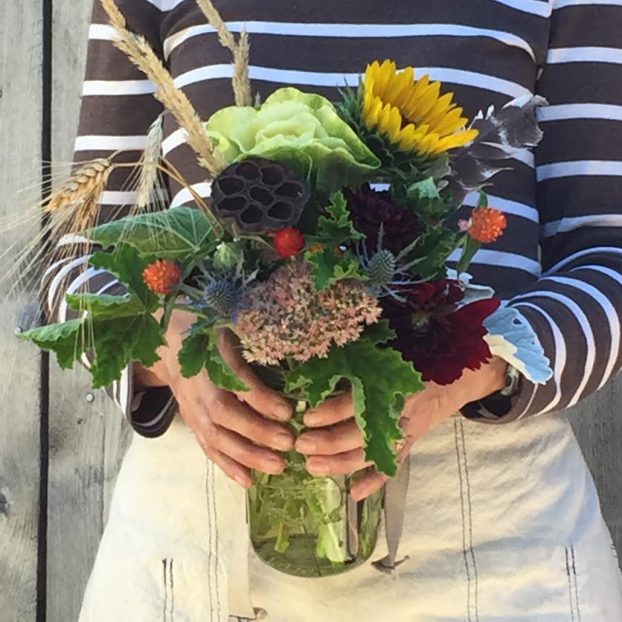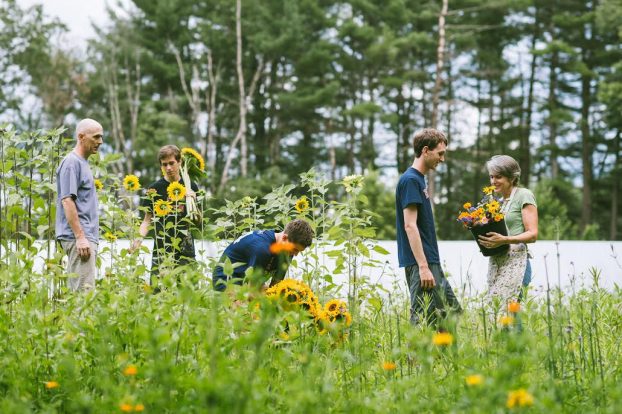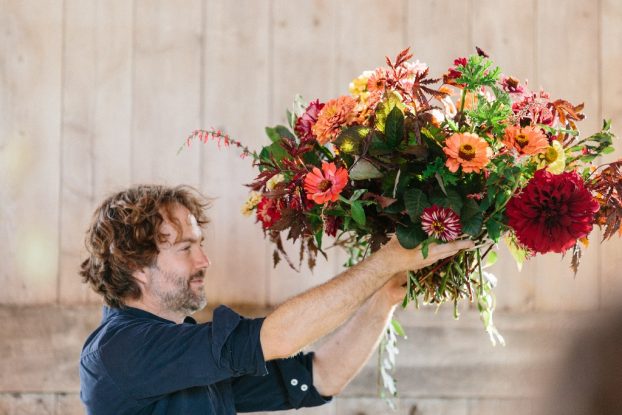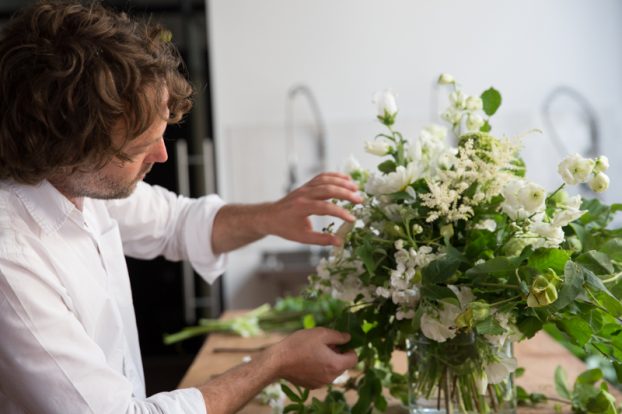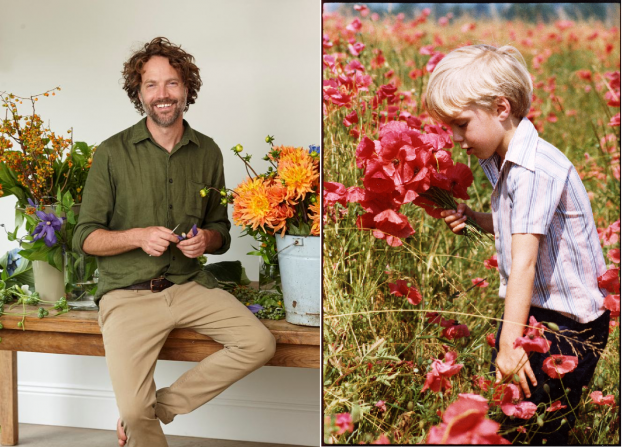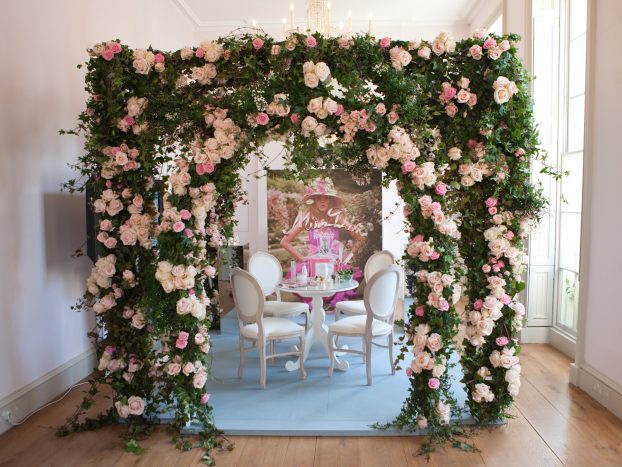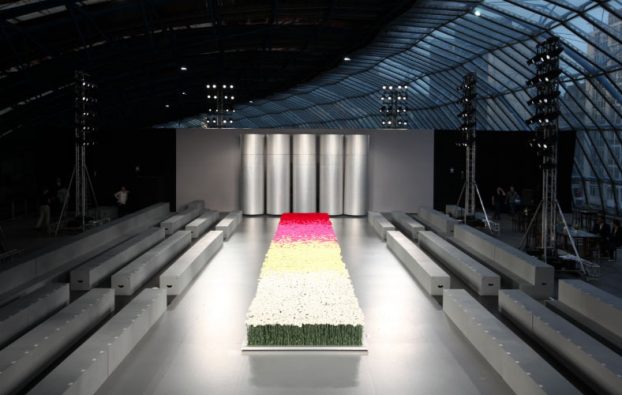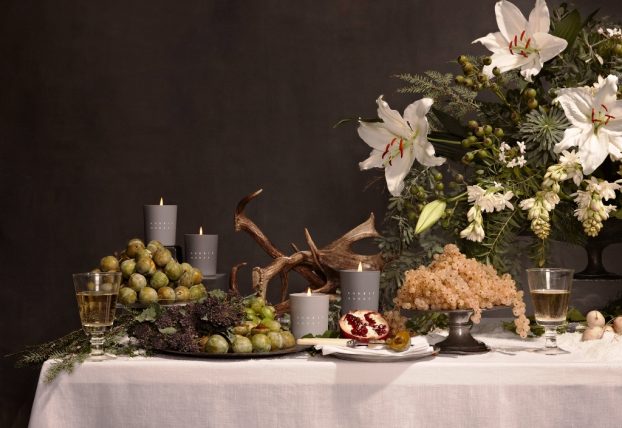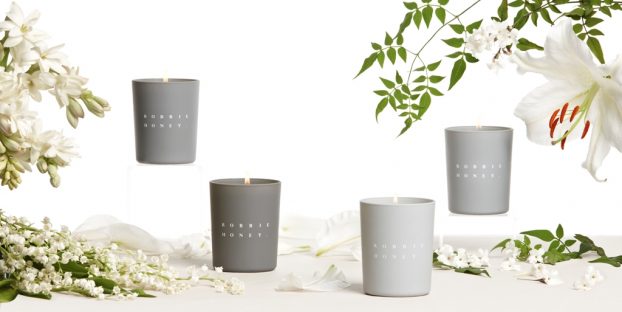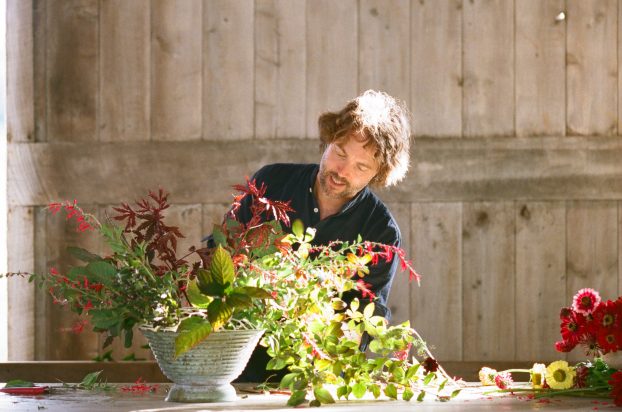Podcast: Play in new window | Download
Subscribe: Apple Podcasts | Podcast Index | RSS | More
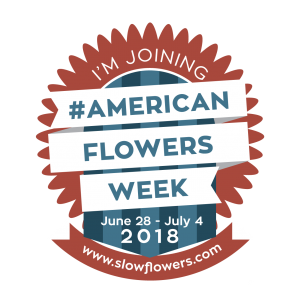 Happy American Flowers Week and Happy Independence Day!
Happy American Flowers Week and Happy Independence Day!
It’s July 4th and we’ve had an incredible week-long celebration of domestic, local, seasonal and beautiful flowers and foliages in all 50 states.
It’s not too late to get in on the festivities!
Slow Flowers created the original domestic floral-promotion holiday in 2015 – and we have enjoyed a terrific run as this campaign builds and expands to include even more of you — and your blooms!
Taking place during June 28th through July 4th, American Flowers Week involves flower farmers, floral designers, studios, markets, grocery stores, wholesalers and promotions both in person and online.
Thank you to everyone who is joining the party and sharing talents, creativity, imagination, and enthusiasm as you engage the public and fellow industry members in the conversation about American-grown flowers! I’m so wowed by what I’ve seen online and in person.
I love that this campaign creates authentic engagement and experiences – farmer to florist, root to bouquet. It means so much that you’ve attended this flower party!
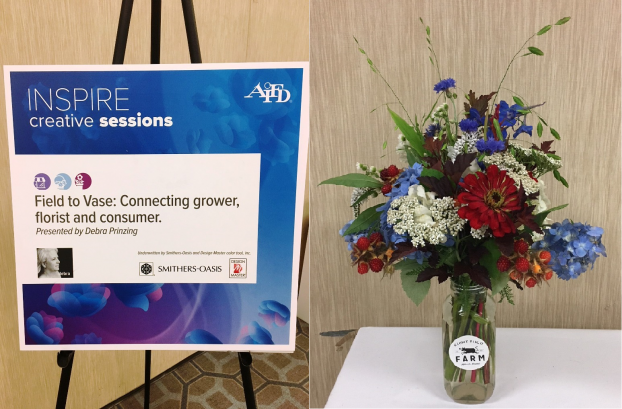
Speaking about the Slow Flowers Movement at AIFD’s annual symposium was a big honor. Sharing local, Maryland-grown flowers from Right Field Farm and Red Chimney Farm.
I’m recording this introduction on July 1st, during the heart of American Flowers Week, while attending the American Institute of Floral Designers’ annual symposium in Washington, D.C.
Amazing and flowery things are happening here in our nation’s Capital.
First, I’m still on a major high, holding onto that euphoric feeling of gratitude and love for the Slow Flowers Community – because two days ago, I hosted the second annual Slow Flowers Summit – also here in Washington, D.C.
Thanks to the generosity of AIFD’s board and staff, we co-located with their conference and used meeting space at the Marriott Wardman Park for a sold-out Slow Flowers Summit.
The Summit is the LIVE embodiment of American Flowers Week, so imagine being together with 100 amazing speakers, designers, flower farmers, innovators, influencers and leaders in the Slow Flowers Movement.
Look for photography and video from our event by searching #slowflowerssummit –You will be hearing a lot more from me about the Summit – including next week’s extensive recap with a big announcement about the 2019 Summit, so be sure to tune into Episode 357 on July 11th.
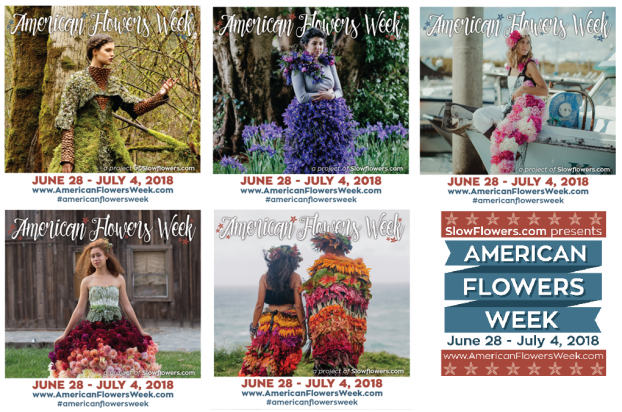 In the past month, you’ve heard from three of the floral artists who imagined and engineered botanical fashions for the American Flowers Week couture collection, including my conversations with Hedda Brorstrom of Full Bloom Flower Farm and Floral Design (listen to Episode 351 here), Faye Zierer Krause of Flora Organica Designs and Carly Jenkins of Killing Frost Farm (listen to Episode 355 here), as we’ve learned how each designer translated her creative vision into a wearable floral garment.
In the past month, you’ve heard from three of the floral artists who imagined and engineered botanical fashions for the American Flowers Week couture collection, including my conversations with Hedda Brorstrom of Full Bloom Flower Farm and Floral Design (listen to Episode 351 here), Faye Zierer Krause of Flora Organica Designs and Carly Jenkins of Killing Frost Farm (listen to Episode 355 here), as we’ve learned how each designer translated her creative vision into a wearable floral garment.
Today, you’ll learn more about designing and fabricating a flower that blossoms into a model’s garment. That takes a lot of imagination, which is what today’s two guests possess in large quantities.
And how fitting – for the 4th annual American Flowers Week, we are visiting the 49th and 50th states, from Alaska to Hawaii!
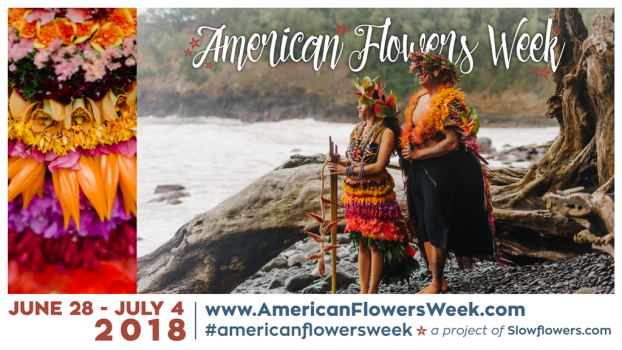
The Hawaii-inspired floral couture pieces, designed by Grace Flowers Hawaii (c) Meghan Spelman, Bikini Birdie Photography
The Hawaii look was designed by our first guest, Alison Grace Higgins and her team at Grace Flowers Hawaii, featuring a dazzling array of Big Island-grown botanicals; the Alaska look was designed by our second guest, Kelly Shore of Petals by the Shore, featuring peonies grown by Beth Van Sandt and Kurt Weichhand of Scenic Place Peonies in Homer, Alaska.
Grace Flowers Hawaii, a full-service florist based in Honoka’a on Hawaii’s Big Island. Alison and her team of designers have more than 25 years of experience in floristry, working extensively with their clients to materialize visions into tangible reality.
Grace Flowers Hawaii specializes in creating beautiful floral arrangements for any occasion and, as a member of Slow Flowers, strives to source as many local flowers and foliages possible. One of the studio’s main beliefs is to leave the planet better, so staff members take recycling and composting seriously. One member of Alison’s team even has a small herd of pigs that love to roll around in the shop’s island-grown green waste.
Having recently moved into a much bigger space that accommodates its increased business, Grace Flowers Hawaii has a retail space, a design studio, storage for an ever-growing prop inventory, two shop cats and room to host community events. If you’re in the area, drop by and say aloha!
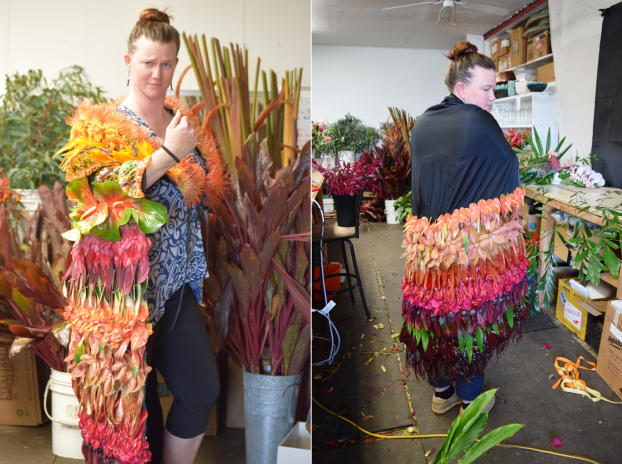
Alison Higgins of Grace Flowers Hawaii — behind the scenes while fashioning the dramatic floral cape!
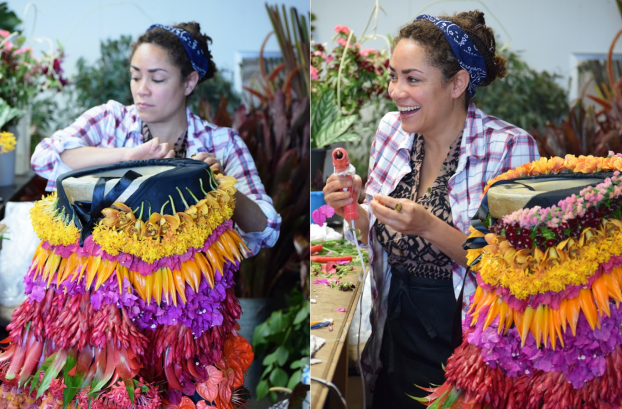
Nicole Cordier of Grace Flowers Hawaii, behind the scenes while creating the high-low botanical skirt.
I met Alison through her shop manager, Nicole Cordier, and Nicole was intimately involved in the creation of Grace Flowers Hawaii’s couture floral wearables.
I have known Nicole since 2011 when we met in Seattle. She is one of the original front desk managers at the Seattle Wholesale Growers Market, working closely with the flower farmers who launched the cooperative seven years ago. Nicole is also a super-talented floral artist. She relocated to the Big Island and joined Grace Flowers Hawaii several years ago and she continues her love affair with locally-grown, seasonal flowers, connecting with farmers and growers across the Big Island to incorporate their tropical and temperate floral crops into Grace Flowers Hawaii’s design work.
You will fall in love with the amazing botanical palette featured in the majestic men’s cape and stunning woman’s hi-low skirt, as well as the lei and headpieces that accessorize the floral fashions created by Alison, Nicole and their colleagues at Grace Flowers Hawaii. I’m so happy we could shine a light on the flower farmers and floral designers of the 50th State.
Grace Flowers Hawaii’s stylized photo shoot is featured in the June 2018 issue of Slow Flowers Journal in Florists’ Review and you can find links to the story below. These enticing visual stories elevate flowers from a field or wild place to a couture look.
CREATIVE CREDITS:
Designers: Alison Grace Higgins (owner) and Nicole Cordier (manager), Grace Flowers Hawaii(Honokaa, Hawaii) @graceflowershawaii
Florals supplied by: J&D Farms (Kamuela), Pacific Floral Exchange (Hilo), Hawaiian Isle Flowers (Volcano), The Orchid People (Kamuela), ESP Nurseries (Kamuela) andHigh Country Farms (Pa’auilo Mauka).
Models: Na’iwi Young of Olowalu Entertainment and Kayla Maluhia Kawai @radshack_hawaii
Hair/Makeup: Gracia Malendres, Grace Makeup Artistry
Photography: Meghan Spelman, Bikini Birdie Photography @bikinibirdie
Download full story of the American Flowers Week Hawaii-Tropical Look here.
Follow Grace Flowers Hawaii on Facebook
See Grace Flowers Hawaii on Instagram
Check out Grace Flowers Hawaii on Pinterest
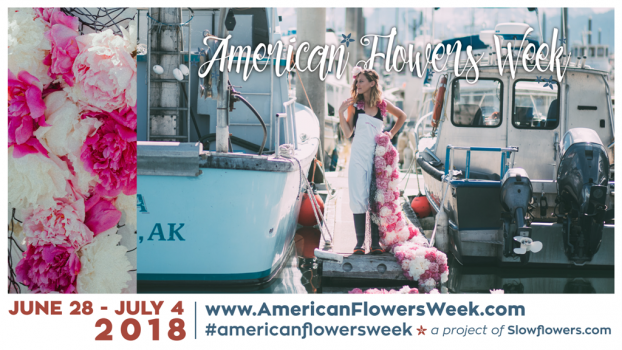
Alaska peonies are the focus of this floral couture pieces, designed by Kelly Shore of Petals by the Shore, with flowers from Scenic Place Peonies (c) Joshua Veldstra Photography
Our second guest is Kelly Shore, of Petals by the Shore. She has appeared on this podcast in the past. Today, we’re discussing how she teamed up with Scenic Place Peonies to interpret the peonies of Homer, Alaska, in a brilliant manner, showcasing place and time in a breathtaking new way.
Based in Damascus, Maryland, Kelly Shore began her floral career in a small campus flower shop at the University of Illinois. What began as a curiosity to know more about floral design quickly became a passion that she didn’t know would become her future. She went on to receive my Bachelor of Arts in Advertising and from there a Masters in Elementary Education. Between studying for those degrees, she designed wedding florals for close friends and family. “I loved being asked to do this and could never say no. After several years, I couldn’t hold back my passion for floral design and Petals by the Shore was born in 2011.”
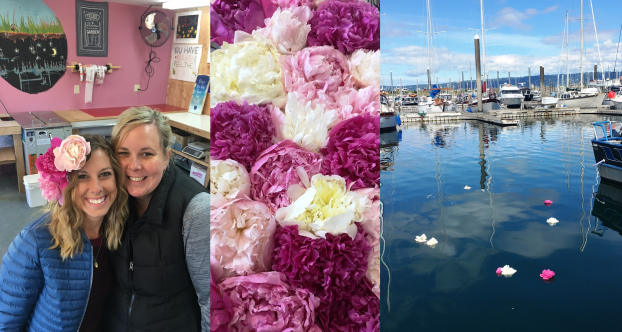
A few of my behind-the-scenes shots, including Kelly with model/flower farmer Ashley Johnson, on location in Homer, Alaska
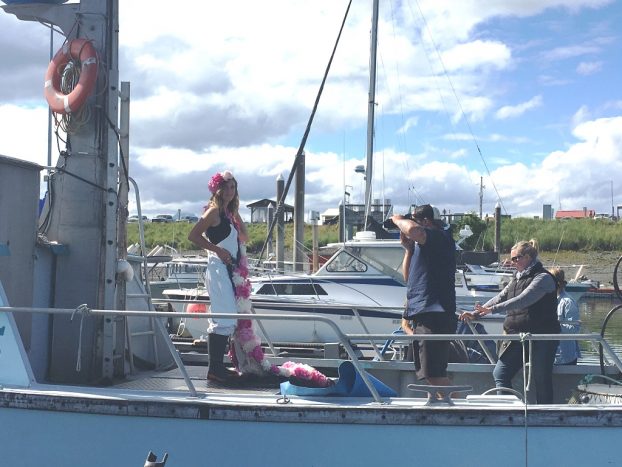
Photographer Joshua Veldstra, designer Kelly Shore, and model Ashley Johnson, aboard a fishing boat at the Homer Spit.
In the past two years, Kelly has dramatically shifted her focus to American-grown inspired design. She has led the First Lady’s Luncheon floral design team for two consecutive years and last year served as featured guest designer at the Field to Vase Dinner in Homer, Alaska.
Petals by the Shore’s stylized photo shoot also appears in the June 2018 issue of Slow Flowers Journal in Florists’ Review and you can find links to the story below.
CREATIVE CREDITS:
Floral Palette: Peony flowers and petals, Scenic Place Peonies (Homer, Alaska) @scenicplacepeonies
Designer: Kelly Shore, Petals by the Shore, @petalsbytheshore
Design assistance: Lisa Thorne, Thorne & Thistle, @thorneandthistle
Model: Ashley Johnson, @ah.schlee
Hair/Makeup: Elizabeth Morphis, Scenic Place Peonies
Apparel: Donated by Grunden’s, @grundens
Photography: Joshua and Brittney Veldstra joshuaveldstra.com, @joshuaveldstra
Download full story of the American Flowers Week’s Alaska Peony look here.
Follow Petals by the Shore on Facebook
See Petals by the Shore on Instagram
Check out Petals by the Shore on Pinterest
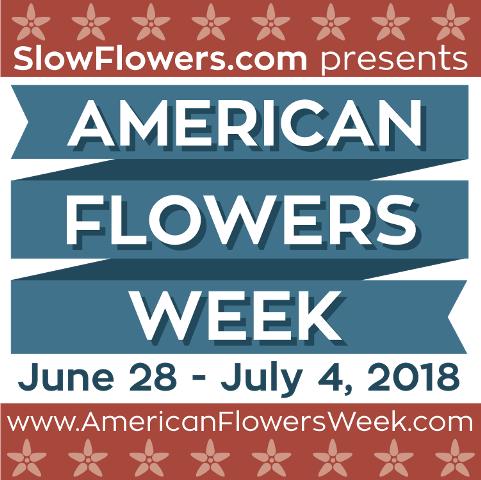 Wherever you find yourself this week, please feel thoroughly welcome to participate in American Flowers Week, coming up June 28-through-July 4th.
Wherever you find yourself this week, please feel thoroughly welcome to participate in American Flowers Week, coming up June 28-through-July 4th.
You’re invited to join in – and I can’t wait to see what you plan and produce — and I’ll be searching and sharing your stories and posts – so be sure to use the hashtag #americanflowersweek. Need inspiration to get started? We have all kinds of resources for you at americanflowersweek.com
I am grateful to all our entire community of flower farmers and floral designers who together define the Slow Flowers Movement. As our cause gains more supporters and more passionate participants who believe in the importance of the American cut flower industry, the momentum is contagious.
I know you feel it, too. I value your support and invite you to show your thanks and with a donation to support my ongoing advocacy, education and outreach activities. You can find the donate button in the column to the right.
The Slow Flowers Podcast has been downloaded more than 333,000 times by listeners like you. Thank you for listening, commenting and sharing – it means so much to know you’re popping in your earbuds each week to join these fascinating and inspiring conversations with me and my guests.
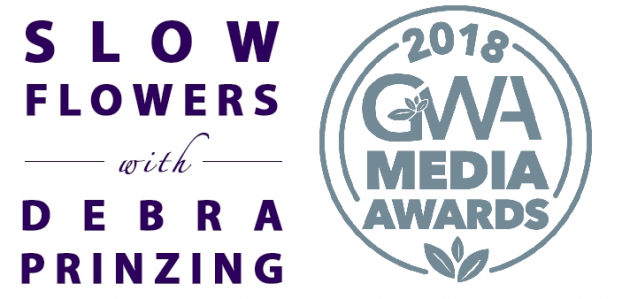 I have fabulous news about the Slow Flowers Podcast!
I have fabulous news about the Slow Flowers Podcast!
GWA, the Association for Garden Communicators, has just awarded the Slow Flowers Podcast a 2018 SILVER Medal of Achievement for Podcasting.
This national award recognizes individuals and companies who achieve the highest levels of talent and professionalism in garden communications. The 2018 competition had more than 260 entries in 56 categories. Recipients of the Silver Medal represent the top winners each competition category and will now compete for best of group in the areas of writing, photography, digital media, broadcast media, publishing and trade.
I’m so excited that my peers have recognized this podcast for its accomplishments and I want to share the award with the entire Slow Flowers Community! You can read more about the award here.
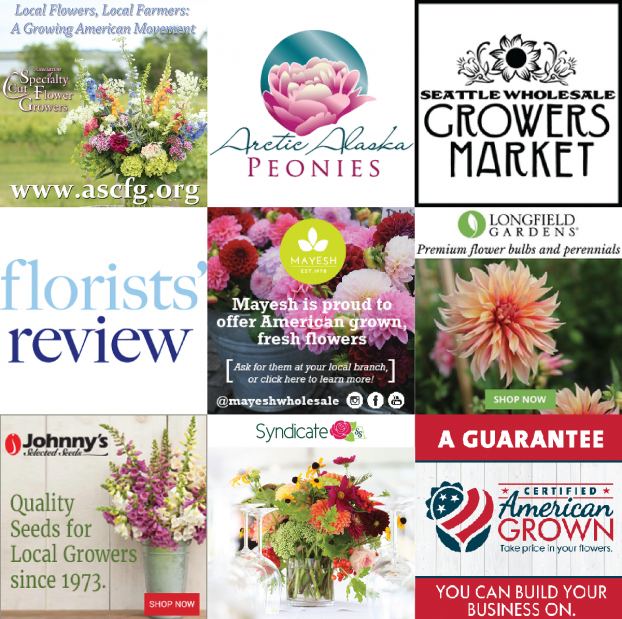 Thank you to our sponsors who have supported Slow Flowers and all our programs. They are:
Thank you to our sponsors who have supported Slow Flowers and all our programs. They are:
Florists’ Review magazine. I’m delighted to serve as Contributing Editor for Slow Flowers Journal, found in the pages of Florists’ Review. It’s the leading trade magazine in the floral industry and the only independent periodical for the retail, wholesale and supplier market. Take advantage of the special offer for a free trial issue
Arctic Alaska Peonies, a cooperative of passionate family farms in the heart of Alaska providing bigger, better peony flowers during the months of July and August. Visit them today at arcticalaskapeonies.com
Seattle Wholesale Growers Market, a farmer-owned cooperative committed to providing the very best the Pacific Northwest has to offer in cut flowers, foliage and plants. The Growers Market’s mission is to foster a vibrant marketplace that sustains local flower farms and provides top-quality products and service to the local floral industry. Find them at seattlewholesalegrowersmarket.com
Longfield Gardens provides home gardeners with high quality flower bulbs and perennials. Their online store offers plants for every region and every season, from tulips and daffodils to dahlias, caladiums and amaryllis. Visit them at longfield-gardens.com.
Syndicate Sales, an American manufacturer of vases and accessories for the professional florist. Look for the American Flag Icon to find Syndicate’s USA-made products and join the Syndicate Stars loyalty program at syndicatesales.com.
Johnny’s Selected Seeds, an employee-owned company that provides our industry the best flower, herb and vegetable seeds — supplied to farms large and small and even backyard cutting gardens like mine. Check them out at johnnysseeds.com.
Association of Specialty Cut Flower Growers. Formed in 1988, ASCFG was created to educate, unite, and support commercial cut flower growers. It mission is to help growers produce high-quality floral material, and to foster and promote the local availability of that product. Learn more at ascfg.org
Mayesh Wholesale Florist. Family-owned since 1978, Mayesh is the premier wedding and event supplier in the U.S. and we’re thrilled to partner with Mayesh to promote local and domestic flowers, which they source from farms large and small around the U.S. Learn more at mayesh.com.
Certified American Grown Flowers. The Certified American-Grown program and label provide a guarantee for designers and consumers on the source of their flowers. Take pride in your flowers and buy with confidence, ask for Certified American Grown Flowers. To learn more visit americangrownflowers.org.
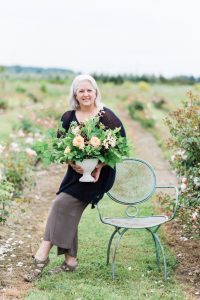
Recently, I played with local roses at a lovely workshop at All My Thyme, with Dawn Severin and instructor Alicia Schwede (c) Becca Jones.
I’m Debra Prinzing, host and producer of the Slow Flowers Podcast.
Next week, you’re invited to join me in putting more American grown flowers on the table, one vase at a time. And If you like what you hear, please consider logging onto iTunes and posting a listener review.
The content and opinions expressed here are either mine alone or those of my guests alone, independent of any podcast sponsor or other person, company or organization.
The Slow Flowers Podcast is engineered and edited by Andrew Brenlan. Learn more about his work at soundbodymovement.com. Special thanks to Stephen Yaussi for taking over editing duties for the coming weeks while Andrew is abroad.
Music Credits:









